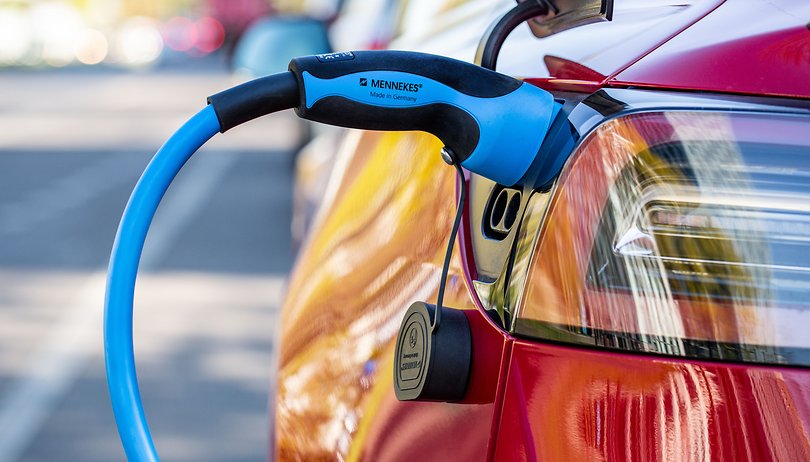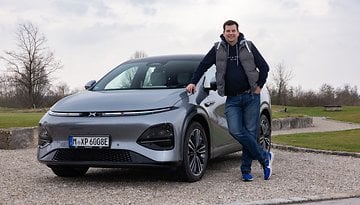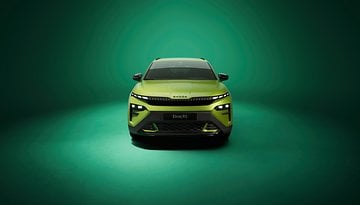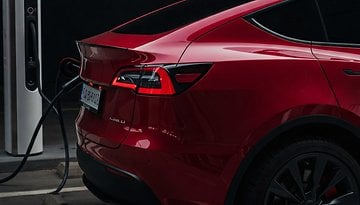EV madness: are we betting on the wrong horse?


Read in other languages:
After the emissions scandal, Fridays for Future and the CO² limit a lot of noise has been stirred up around the climate. And we are standing in the middle of the cloud. This is why I think we should be focusing less on electric cars.
Renault advertises with the slogan "Créateur d'automobiles" (Nothing is impossible). Volkswagen later proved how true that statement can be, and not in a good way. On September 3, 2015, the VW Group confessed to the manipulation of exhaust gas emissions tests before the US Environmental Protection Agency (EPA). The population itself did not learn about it until more than two weeks later, and only because the EPA made the accusations public. What followed was a huge scandal.
And now, somehow, it's all over in one fell swoop. As the German newspaper Die Zeit wrote last week, the lawyers of the corporations agreed on a deal. This will cost VW around 830 million euros. Peanuts when you think of how much trust the company lost with this rash action. And rightly so. The only question I ask myself is: do we really want the car industry to be the savior of our climate problems?
The car industry is only going green by force
By tightening the CO² limits, politicians have certainly given a good (albeit ridiculously small) impetus in the right direction for climate-friendly driving. Because since this year, thanks to new rules, CO² emissions for new cars may only be 95 g/km. According to Verkehrsclub Deutschland (an ecological traffic club in Germany), this amounts to 3.6 liters of diesel or 4.1 liters of petrol. Compared to 2021, the emission is then expected to fall by a further 37.5 percent by 2030. If a manufacturer's cars are above this value, they will have to pay the price - and it's expensive!
Manufacturers are therefore forced to convert their car fleets to electric if they do not want to pay up. Because only if a not inconsiderable part of their fleet consists of EVs or hybrids can the goals be met. Then there is the EU, which has just raised the tax breaks for electric cars. For example, cars with a list price of 40,000 euros will be subsidised with 6,000 euros instead of the previous 4,000. Cars that are above the 40,000 euros receive a subsidy of about 5,000 euros. According to German news outlet Heise, bonuses that are intended to promote sales are good for consumers, but not very lucrative for car manufacturers. They do not make much profit on these sales, if any at all. So the result is that we're asking the manufacturers to give up money for the sake of the environment. Sure, they will love that!
The charging paradox: a farce in two acts
What petrol or diesel is to your old car, electricity is to the EV. Without it, not much movement comes into play with the car. So in order for the ecologically better cars to be profitable, we also need the corresponding charging infrastructure. The car industry promised to build about 15,000 charging stations in Germany by 2022. And they are implementing this, at least in parts, in good old automotive industry manner.
The best charade in the world: the thing with the 15,000 charging stations
Let's remain objective: a charging station is not cheap. Such a system can cost a car dealership between 10,000 euros and 50,000 euros. So the fact that German Chancellor Angela Merkel promised one million of them by 2030 before the car summit last year made me wonder. Well, if you can finance the Berlin airport, you can certainly scrape enough money out of the tax pot to do something decent with it. Yet it is still a gigantic promise. But in fact, during the meeting, it was probably not quite so sure who should actually empty their pockets for the financing.
The car industry agreed to help out, even if - as they themselves said - they would not manage any petrol stations. In other words, they are basically not responsible for this area. Either way, the glorious three did eventually appear on the scene: BMW; Daimler and of course Volkswagen. These promised to set up 15,000 charging stations for the time being. Volkswagen makes a promise - does that still sound implausible to anyone?
In fact, manufacturers seem to understand their promise in a more flexible way. So the world reported on 14 February that they would pass on their obligations to the car dealerships. According to Jürgen Karpinski, President of the German Association of Motor Vehicle Manufacturers (ZFK), car dealerships "are required by the manufacturers as a contractual standard to create such loading facilities at their own expense, which often go far beyond their own operational needs."The ironic thing is that the charging stations should not be built where they are really useful to the vehicle owners. Instead, the plan is for the columns to be set up on their own premises or at the car dealerships themselves. The latter will then probably only serve the car dealers' own needs.
No one is equal before the car industry god
Honestly, who would buy a car that is many times more expensive than the old petrol engine version? For my part, I probably wouldn't do it, even if I care about the climate. Not only the question of range, but also the price of electricity is an important factor when buying an electric car.
Until just before the end of January, recharging also looked attractive for most electric vehicle owners. One charge cost eight euros and that was all you needed to know. But all this changed very quickly when the electricity operator IONITY changed its prices on January 31. From then on, the price was not only calculated according to charging but also according to kilowatt. Nice touch, huh? In our article, we calculated how much you have to spend for 60 kWh.
The crux of the matter is this: IONITY is in a corporate cooperation of Mercedes, BMW, Ford, and Volkswagen. If you want to pay less, you can simply sign a corresponding contract with the founding parties. This way you can balance your expenses with the electric car sales of course. And can anyone still remember the statement that the car manufacturers would not run petrol stations? What hypocrites!
Why do we actually give so much power to the car manufacturers?
Looking back at the negative developments on the market, one is surprised how often VW was involved. Not because I expected any kind of catharsis from the company. But at least so much shame that one does not immediately put oneself on display again with such actions. To fool us once: shame on you - to fool us twice: shame on us! It's okay that companies want to make money and want to make up for the loss they make through the price cuts. But to do this on the backs of others, especially loyal buyers, is simply wrong. What I find even worse, however, is that car manufacturers are allowed to operate their own charging stations and thus can deliberately treat customers of other manufacturers worse. If this is already approved by politicians, then there should be a clear limit on how high prices are allowed to rise.
Ultimately, however, it is up to us how we improve our climate and whether we want to put so much power in the hands of the car industry. Don't get me wrong: Especially for those who live in a village or in the surrounding area, having your own car is the best option. But in the city?
I find Luxembourg, for example, remarkable. The country was the first to establish free public transport. Since February 29, anyone can travel here by bus, tram or train without a ticket. Of course, this concept does not suit every country (mainly because it is financed by taxpayers' money), but why not invest more in the public network instead of giving so much free rein to the car industries? Cheaper tickets are only one possibility, but a good one in my opinion. The same applies to better-developed cycle paths - especially in Berlin, this would make many things easier.
Source: tagesschau, Welt, VCD




















Excuse my French, but I don't think that "Créateur d'automobiles" means Nothing is impossible
-
Admin
Mar 4, 2020 Link to commentAt home we pay electricity by consumption so why should car owners pay it less or in a different way ? I also do not understand what is so surprising in the fact that companies try to make profits. It is capitalism and it is how it works. It can not work in any other way. What should be questioned is if a different system is possible and how to implement it.So simple
Mass transit requires a certain population density and tax base. If those two don't coincide, it's a non-starter. The US lacks population density. And in those few locales where there is enough density they can't tax enough to finance it. The voters won't cooperate here. Hopefully the mindset of the next generation will be different or understand the wide implications enough.